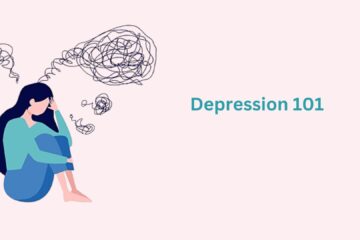Cognitive Behavioral Therapy (CBT) is a form of psychotherapy that focuses on the interaction between thoughts, behaviors, and emotions. It is based on the premise that our thoughts and beliefs influence our emotions and behaviors, and that changing these thoughts and beliefs can lead to more positive outcomes. CBT is one of the most widely used and researched forms of psychotherapy, and has been shown to be effective in treating a wide range of mental health conditions, including depression, anxiety, post-traumatic stress disorder (PTSD), and obsessive-compulsive disorder (OCD).
Theoretical Framework:
The theoretical framework of CBT is based on two main models: the cognitive model and the behavioral model. The cognitive model suggests that our thoughts and beliefs influence our emotions and behaviors, while the behavioral model focuses on learning and reinforcement, and how behaviors are shaped by our environment. CBT combines these two models to help clients understand the interaction between their thoughts, behaviors, and emotions.
Core Concepts:
CBT focuses on several core concepts, including automatic thoughts, cognitive distortions, beliefs and assumptions, behavior patterns, and emotional regulation. Automatic thoughts are the immediate, unconscious thoughts that occur in response to a situation or trigger. Cognitive distortions are exaggerated or irrational thinking patterns that can lead to negative emotions and behaviors. Beliefs and assumptions are deeply held convictions that shape how we view ourselves, others, and the world around us. Behavior patterns are learned responses to environmental cues and triggers. Emotional regulation refers to the ability to manage and regulate one’s emotions.
Techniques and Strategies:
CBT uses a variety of techniques and strategies to help clients identify and change negative thought and behavior patterns. These include psychoeducation, cognitive restructuring, behavioral experiments, exposure therapy, mindfulness, homework assignments, role-play and rehearsal, and relaxation techniques.
Psychoeducation involves educating clients about the cognitive and behavioral models of CBT, and how they can apply these models to their own lives.
Cognitive restructuring involves identifying and challenging negative thoughts and beliefs, and replacing them with more positive and realistic ones. Behavioral experiments involve testing out new behaviors and thoughts in real-world situations.
Exposure therapy involves gradually exposing clients to feared or avoided situations in a safe and controlled environment. Mindfulness involves cultivating present-moment awareness and non-judgmental acceptance of one’s thoughts and feelings.
Homework assignments involve practicing new skills and strategies outside of therapy sessions. Role-play and rehearsal involve practicing new behaviors and thought patterns in a simulated environment. Relaxation techniques involve learning and practicing relaxation and stress reduction techniques, such as deep breathing or progressive muscle relaxation.
Applications and Effectiveness:
CBT has been shown to be effective in treating a wide range of mental health conditions, including depression, anxiety, PTSD, OCD, and phobias. It is often used in combination with other forms of therapy or medication. CBT has been found to be as effective or more effective than other forms of psychotherapy, and is considered to be one of the most evidence-based and empirically supported forms of psychotherapy.
Criticisms and Limitations:
Critics of CBT argue that it can be overly focused on changing thoughts and behaviors, and may neglect the underlying emotional or psychological issues that contribute to mental health conditions.
Others argue that CBT may be too rigid or formulaic, and may not take into account the unique needs and experiences of each individual client. Some also point out that CBT may be difficult or impractical for some clients to implement outside of therapy sessions.
Conclusion:
CBT is a widely used and researched form of psychotherapy that focuses on the interaction between thoughts, behaviors, and emotions.




